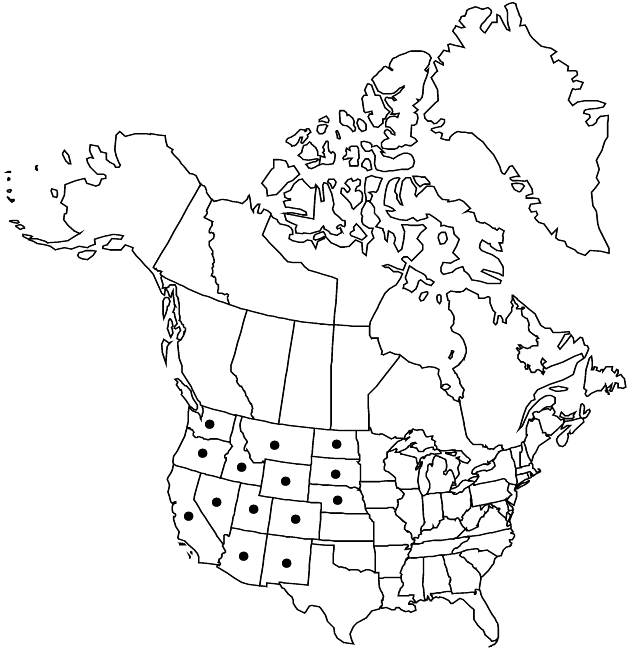Artemisia tridentata subsp. wyomingensis
Rhodora 67: 405. 1965.
Shrubs, 30–50(–150) cm (crowns rounded). Vegetative branches (stiffly spreading, often persisting, giving mature plants a twiggy appearance) interspersed among flowering stems. Leaves narrowly to broadly cuneate, (0.4–)0.7–1.1(–2) × (0.1–)0.2–0.3 cm, lobed (lobes rounded). Heads in paniculiform arrays 2–6(–8) × 1–3 cm (often immersed in vegetative branches). Involucres (1–)1.5–2 × 1.5–2 mm. Florets 4–8. Cypselae glabrous. 2n = 36, 54.
Phenology: Flowering mid summer–late fall.
Habitat: Rocky or fine-grained soils, cold-desert basins to high plateaus, foothills
Elevation: 800–2200 m
Distribution

Ariz., Calif., Colo., Idaho, Mont., Nebr., Nev., N.Mex., N.Dak., Oreg., S.Dak., Utah, Wash., Wyo.
Discussion
Subspecies wyomingensis is the common sagebrush of rocky or fine-grained soils from valleys to high plateaus in the Great Basin. It is an allopolyploid that may be derived from the populations of subsp. tridentata with which it occurs. Identification is based primarily on the shorter leaves of subsp. wyomingensis, its usually shorter stature, and its shorter flowering branches that are retained from year to year. Wyoming sagebrush may be increasing in abundance in response to increased grazing pressure and drought in the high valleys of the Great Basin.
Selected References
None.